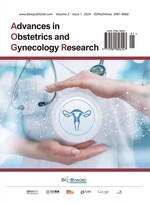Abstract
Objective: To implement a lymphocyte immunotherapy program for women experiencing recurrent biochemical pregnancy loss and explore its clinical effects. Methods: The study employed a retrospective design. From January 2015 to January 2016, a total of 100 patients with recurrent biochemical pregnancy loss were enrolled as observation objects. Subsequently, the patients were divided into two groups based on different treatment plans, each comprising 50 cases. The observation group received conventional tocolysis in addition to lymphocyte immunotherapy, while the control group received only conventional tocolysis treatment. Evaluation criteria included pregnancy outcomes, improvements in serum factor levels, and treatment safety, enabling a comparison of the clinical effects of different treatment options. Results: In the observation group, the pregnancy success rate was 82.00%, whereas in the control group, it was 48.00% (χ2 = 12.7033, P < 0.05). Following treatment, levels of interferon-γ (IFN-γ) were higher in the observation group than in the control group, while levels of interleukin-8 (IL-8) and regulatory protein (BANTES) were lower in the observation group compared to the control group (P < 0.05). The difference in treatment safety between the two groups was negligible (P > 0.05). Conclusion: The incorporation of lymphocyte immunotherapy for patients with recurrent biochemical pregnancy loss can enhance successful pregnancy rates, demonstrating significant efficacy and warranting further application.
References
Liu C, Jung L, Yuan J, et al., 2012, Effects of Lymphocyte Active Immunotherapy on Treg and Th17 Cytokines in Patients with Unexplained Recurrent Miscarriage. Journal of Reproductive Medicine, 21(1): 12–16.
Zhang J, Fang X, He Y, et al., 2012, Clinical Observation of Active Immunotherapy Plus Dydrogesterone in the Treatment of Recurrent Miscarriage. Practical Preventive Medicine, 19(7): 1048–1050.
Zhang Y, Liu M, Li P, et al., 2012, Research on Lymphocyte Active Immunity Combined with Gamma Globulin in Treating Recurrent Miscarriage. International Journal of Immunology, 35(5): 398–402.
Wang L, Zhao L, Weng N, et al., 2013, Analysis of the Efficacy of Lymphocyte Active Immunotherapy in 92 Patients with Recurrent Spontaneous Abortion. Journal of Reproductive Medicine, 22(11): 883–885.
Diao L, Chen X, Zhu Y, et al., 2013, The Impact of HLA-DQA1/DQB1 Histocompatibility and Lymphocytes from Different Sources on the Production of Blocking Antibodies in Patients with Recurrent Miscarriage During Immunotherapy. Journal of Reproductive Medicine, 22(12): 936–940.
Fan K, Wu K, Li L, et al., 2013, Study on the Impact of Blocking Antibody Changes on Subsequent Pregnancy in Patients with Recurrent Spontaneous Abortion Before and After Active Immunotherapy. China Medical Herald, 10(9): 56–58.
Yang S, Zhao Z, Hao G, et al., 2013, Changes in Serum Chemokine Levels in Patients with Unexplained Recurrent Miscarriage Before and After Immunotherapy. Journal of Hebei Medical University, 34(6): 649–652.
Guo Y, Li X, Zhang J, et al., 2014, Clinical Observation of T Lymphocyte Expression Rate and Therapeutic Effect in Patients with Recurrent Miscarriage Before and After Immunotherapy. Chinese Journal of Family Planning, 22(1): 41–43.
Chen L, Qiu Y, Ou X, et al., 2014, Nested Case-Control Study of Allogeneic Lymphocyte Immunotherapy for Unexplained Recurrent Miscarriage. Journal of Practical Obstetrics and Gynecology, 30(4): 295–298.
Gao K, Xu H, Liu B, 2014, Comparison of Serum Proteomics Before and After Active Immunotherapy in Normal Early Pregnancy and Unexplained Recurrent Miscarriage. Guangdong Medicine, 35(13): 2069–2072.
Yang K, Zhang B, Liao S, et al., 2014, The Role of the HLA-DRB1 Gene in Predicting Pregnancy Outcomes of Immunotherapy in Henan Han Patients with Unexplained Recurrent Miscarriage. Chinese Journal of Medical Genetics, 31(3): 380–382.
Hu X, Liang P, Huang C, et al., 2014, Effects of Lymphocyte Immunotherapy on Peripheral Blood T Cells in Patients with Unexplained Recurrent Miscarriage. Journal of Reproductive Medicine, 23(9): 733–738.
Yang Z, Zhou C, Li X, et al., 2014, Clinical Observation of Lymphocyte Active Immunity Combined with Dydrogesterone in the Treatment of Recurrent Miscarriage Caused by Negative Blocking Antibodies. Journal of Reproductive Medicine, 23(2): 128–130.
